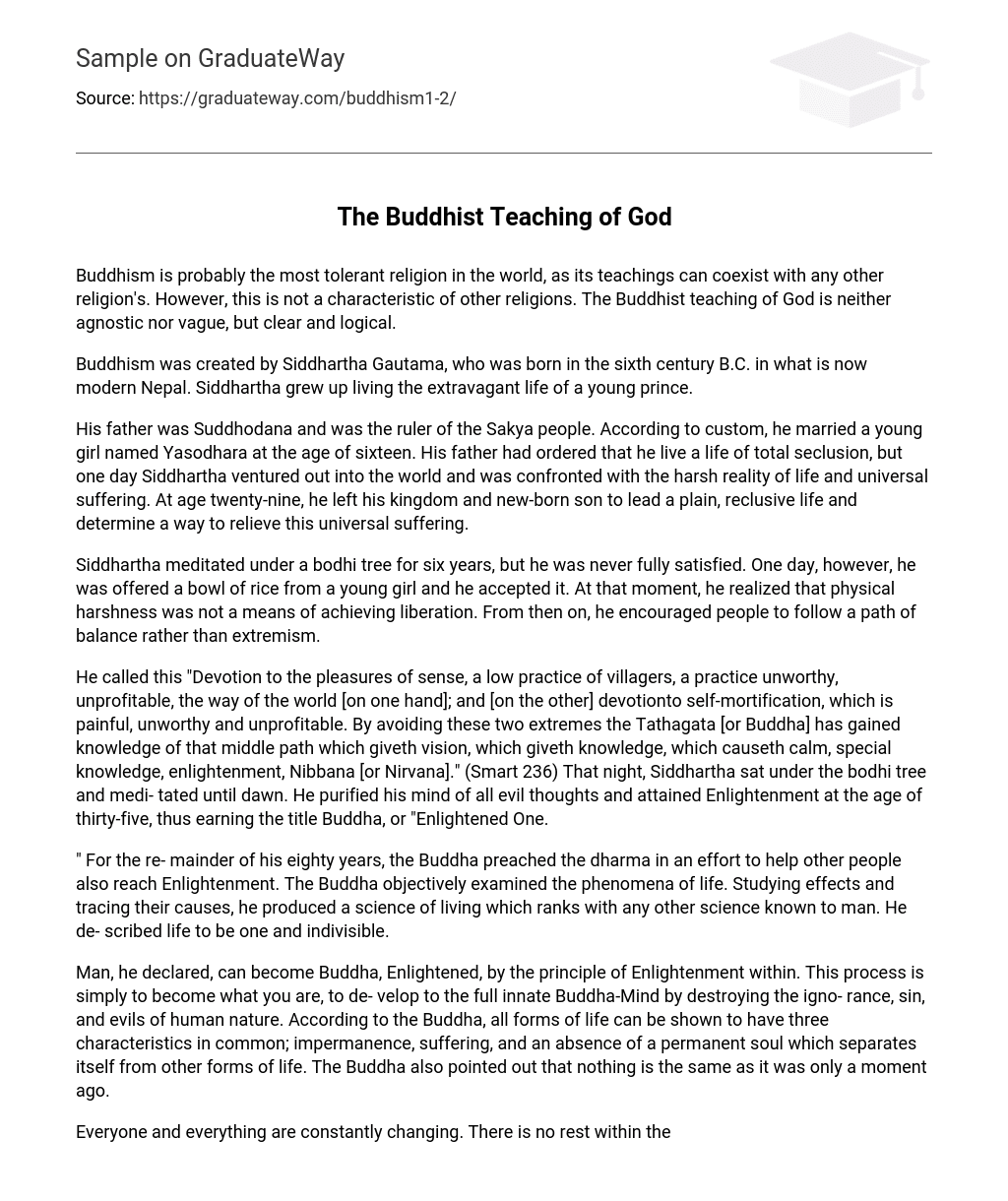Buddhism is distinguished by its extraordinary tolerance and capacity to peacefully coexist with other religions, a quality that is uncommon in most other faiths. What makes Buddhism unique is its precise and logical interpretation of the concept of God, which sets it apart from being agnostic or unclear.
Siddhartha Gautama, who was born in the sixth century B.C. in present-day Nepal and brought up as a young prince, is the originator of Buddhism. He lived a life of luxury.
His father, Suddhodana, ruled over the Sakya people. In accordance with tradition, he married a young girl named Yasodhara at the age of sixteen. Despite his father’s command for him to live in complete seclusion, Siddhartha chose to explore the world one day and confronted the harsh realities of life and the suffering that impacts all individuals. At twenty-nine years old, he left behind his kingdom and newborn son to seek a simple and isolated existence, searching for a resolution to ease this widespread suffering.
Siddhartha’s dissatisfaction persisted despite spending six years meditating beneath a bodhi tree. However, his outlook transformed when he accepted a bowl of rice from a young girl. This encounter helped him realize that physical asceticism did not bring about liberation. Consequently, he started advocating for a middle way, promoting balance instead of extreme practices.
Siddhartha explains that there are two extreme practices: one is the pursuit of sensual pleasures, which is considered unworthy and unprofitable; the other is the practice of self-mortification, which is both painful and unprofitable. However, instead of choosing these extremes, Buddha has discovered a middle path that leads to vision, knowledge, calmness, special knowledge, enlightenment, and Nirvana. That night under the bodhi tree, Siddhartha engaged in meditation until morning. At thirty-five years old, he purified his mind from all negative thoughts and achieved Enlightenment – thus earning him the title Buddha or “Enlightened One.”
“For the remainder of his eighty years, the Buddha preached the dharma to assist others in achieving Enlightenment. He objectively analyzed life’s phenomena, studying effects and tracing their causes, resulting in a scientific understanding of living that rivals any other known science. He declared life as unified and indivisible.”
Man can become Buddha, Enlightened, by embracing the principle of Enlightenment within oneself. This entails developing one’s innate Buddha-Mind fully by eliminating the ignorance, sin, and evils of human nature. The Buddha teaches that all forms of life share three common characteristics: impermanence, suffering, and the absence of a permanent soul that distinguishes itself from other life forms. Additionally, the Buddha highlights the dynamic nature of existence, emphasizing that nothing remains unchanged as time progresses.
In the universe, everything and everyone are in a constant state of change. There is no rest; only an eternal process of becoming and continuous transformation. Buddhism rejects the notion of an immortal soul within human beings. The Enlightenment that exists within life is not limited to any specific form.
Buddhism is a religion that embraces the ever-changing nature of humanity, aligning mind and body. The Buddha acknowledged that individuals are governed by their own actions, be they good or evil, as determined by their self-created Karma. Despite the emergence of different forms of Buddhism since the Buddha’s death, there remains a universal essence embraced by all Buddhists.
All Buddhists acknowledge four fundamental noble truths. The initial noble truth of the world is dhukka, also known as suffering. The second truth is tanha, or desire, which serves as the root cause of suffering. The third truth states that in order to liberate oneself from suffering, one must conquer desire.
The fourth truth teaches how to achieve liberation from suffering using the eight-fold path. This method helps attain freedom from cravings, ignorance, rebirth, old age, disease, death, sorrows, lamentation, grief, and despair. It aids in ending widespread suffering and guiding individuals towards Nirvana or salvation. Buddha’s fundamental teachings involve performing good deeds, avoiding evil actions, and purifying the heart.
As per Buddha’s teachings, regular individuals have impure hearts that are filled with greed, ill will, and delusion. These impurities arise from desires, where both greed and hatred originate. Delusion, especially self-delusion, occurs due to ignorance. In truth, ignorance is the fundamental cause of desire and ultimately the primary reason for suffering and rebirth.
The Buddha emphasized that by following various methods such as self-control, self-restraint, meditation on oneself, and the Eight-Fold Path which leads to the end of suffering, one can purify their heart. These principles are integral to Buddhism.
Buddhism seeks to assist individuals in comprehending personal and societal suffering, along with methods for conquering it. It is a simple religion that highlights the conversion of negativity into positivity, providing a message of deliverance and optimism to those who decide to adopt its teachings.





